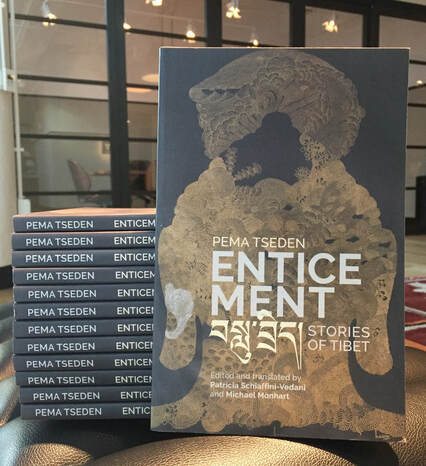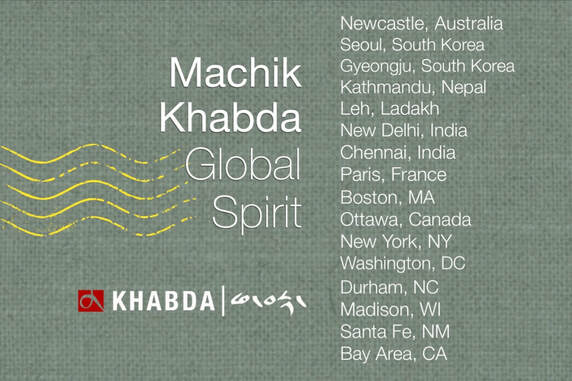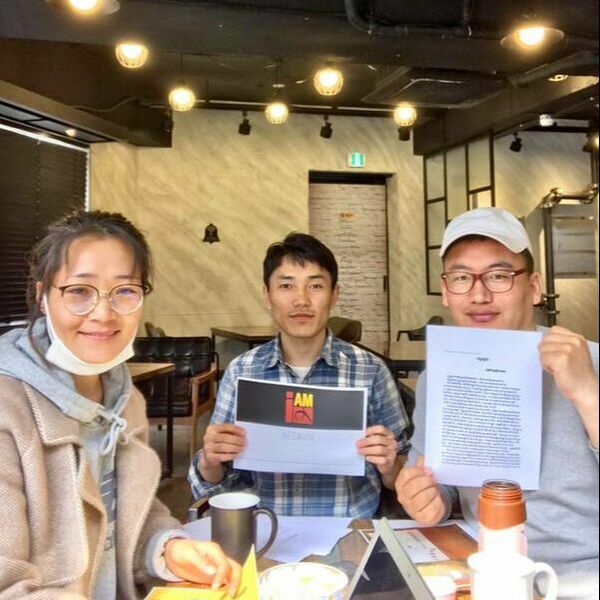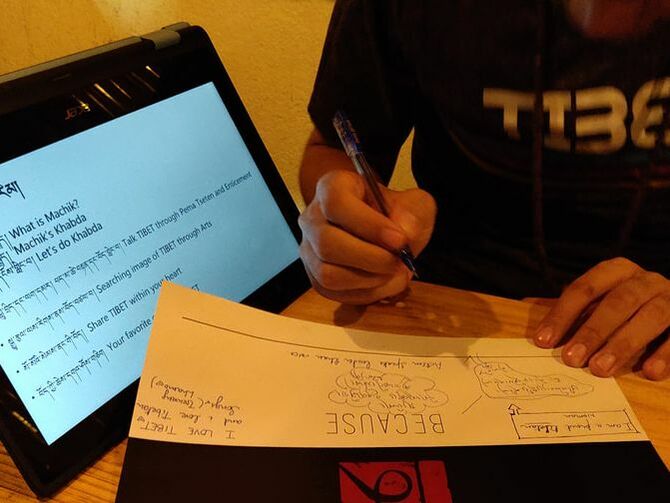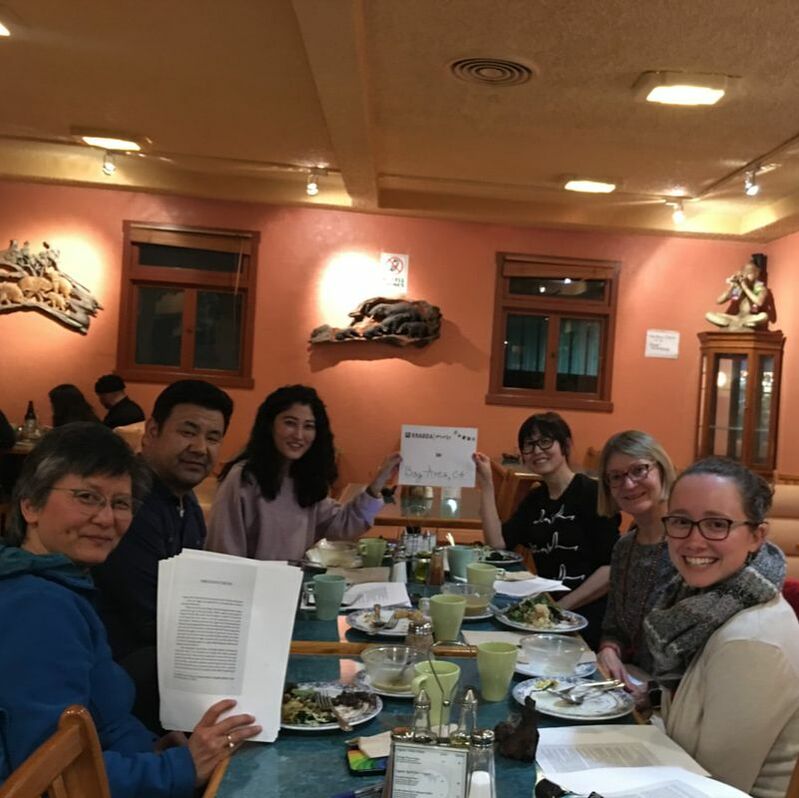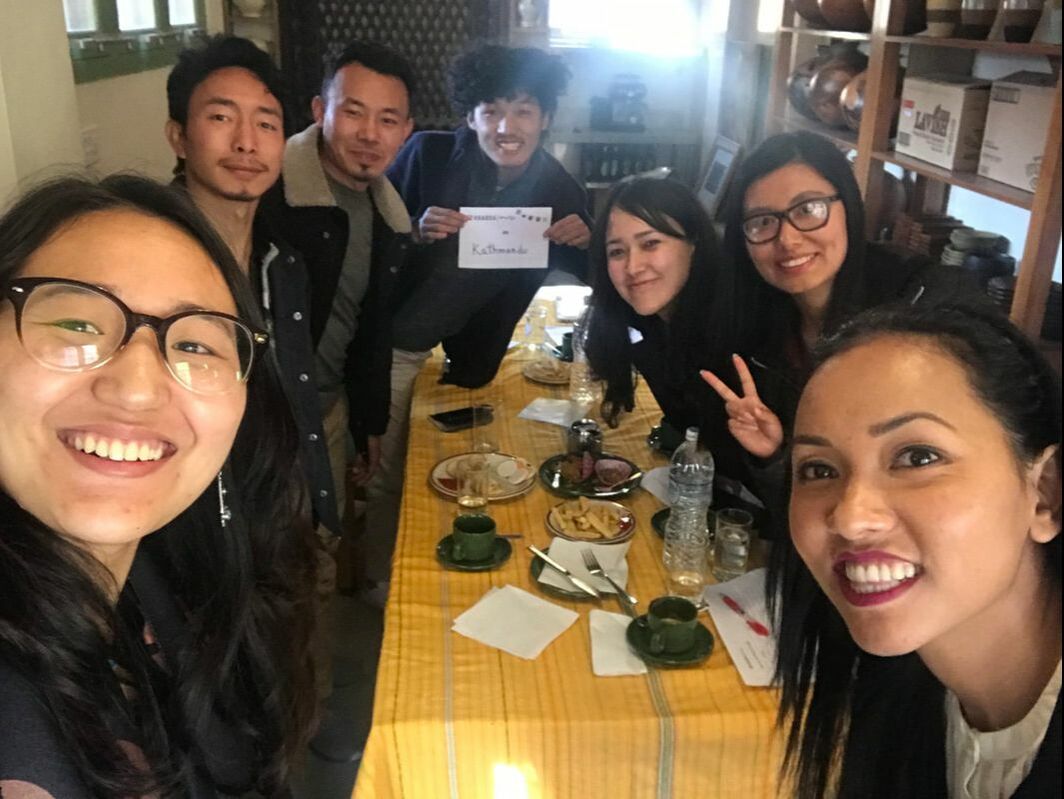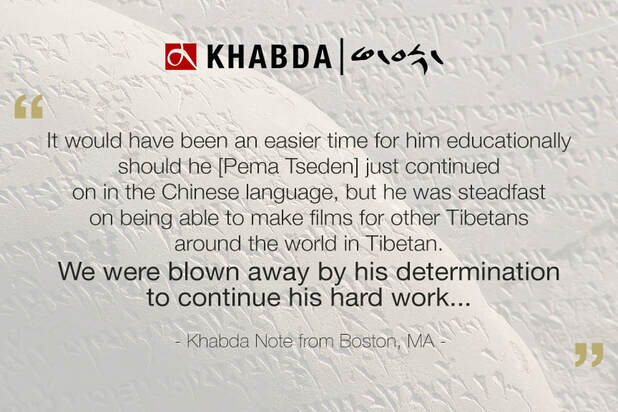|
Tashi deleg everyone! My name is Tenzin Chokki and I am a Program Associate at Machik. From the entire Machik team, I would like to welcome you all to our first post on the Khabda Blog. A month ago, we launched Machik Khabda as a global platform for locally hosted gatherings where people come together to share conversation on the contemporary cultural production scene and cultural products originating from the Tibetan plateau. For our inaugural Khabda, we launched the program by highlighting Enticement: Stories from Tibet, the first English-language anthology of short stories written by Pema Tseden, and translated by Michael Monhart and Patricia Schiaffini-Vedani. A very special thank you to the two translators who worked on this exciting English-language resource for those who do not read literary Tibetan or Chinese. If you haven't yet read the Khabda interview with the translators, do check them out here! Since Machik Khabda is a brand new program, we weren't sure what to expect. The resulting stories, photos, videos and debrief meetings that came out of the 1st Khabda gathering showed us that we have had a successful venturing into creating another global space for meaningful conversation on Tibet. We could not have done this at all without the generous spirit of all local hosts from around the globe. In total, the first Machik Khabda gatherings occurred in 16 different locations, ranging from the Australian continent to various cities across North America. Here in Washington DC where we are located, local folks gathered for a conversation and discussion of "Orgyan's Teeth," the featured story for our first Khabda. In the first ten minutes of our chat, two young professionals brought smiles across the room as they read the first few lines of the story in the three main dialects of the Tibetan language. Personally, it was such a delight to listen to the variation in sound and texture of the language especially since "Orgyan's Teeth" was originally written in Tibetan. As per the request of some local hosts, we made sure that people could access the story, both in English and Tibetan, and through this experience, I had a lovely time reconnecting with my mother tongue. I hope it brought others a similarly richer experience engaging with the work of a contemporary creative from Tibet. From the backend of our work -- developing the online content, coordinating logistics for a program, connecting with our gracious hosts to organize and actuate the local programs -- I can say simply that the experience has been splendid. As local hosts kept updating me on the time and location of their gatherings, the only thing I could hope for was a chance to be there at the Momo Sakhang in Chennai or at the local park in Newcastle or at the personal home of our host in Santa Fe where folks gathered over bowls of thukpa and conversation on Enticement. If only there was a machine that could transport me across time and space, it would come in handy for being able to join all the Khabda groups, meet people from a diverse set of local communities, share important conversations on the contemporary cultural landscape of Tibet, and of course, break bread together! When we heard back from our hosts on how their individual Khabdas went, it became apparent that there are many reasons for why this platform needs to exist. Firstly, it provides a direct link to cultural knowledge that is originating out of Tibet and makes such knowledge more accessible to those of us outside of Tibet, be it a young Tibetan growing up in diaspora or a whole community of non-Tibetan friends. Several local hosts shared notes on the style and format of contemporary Tibetan literature after reading "Orgyan's Teeth," and found it amusing that the story could be easily understood and felt by the reader. A Khabda participant from Gyeongju, South Korea, shared the following remark, "Pema Tseden is the mouth of common Tibetans." Another Khabda-wa from Madison mentioned how "Orgyan's Teeth" gave an "honest disclosure and acceptance of culture, death, friendship and the hardships of life that are to come." Though he writes from the vantage point of a person raised on the Tibetan plateau, almost all collected reflections from the inaugural Khabda gatherings demonstrated how fluid and transferrable the themes and questions raised in Pema's writings are to any kind of human society in the world today. Secondly, this platform makes it easier for anyone to continually engage with Tibet on a personal level. Almost all hosts came from urban lifestyles which derive on its own cycle of busyness. Although Tibet may have a special spot in our hearts and minds, we realize that it is quite hard to activate our consciousness and literally build a time in our day to pause and carefully consider what is happening inside contemporary Tibet. You (our local hosts) told us that Khabda acts as an easy medium for everyday engagement with contemporary Tibet that highlights human capacity, perseverance and the need to act in order to build a stronger future for Tibet. Our local hosts in Boston highlighted Pema's determination in using Tibetan in his writings and filmmaking and emphasized that there needs to be more innovative approaches to learning the Tibetan language, especially for the younger generations. We couldn't have been happier to hear that. If there is a way we can make it easier for people to continue to learn, think, and act for Tibet, then be rest assured that we will do everything we can to make that program grow and flourish. Thirdly, Khabda emphasizes the human capital each of our communities carry, and brings forward the power that lies behind the transformational practice of gathering people together in advancing knowledge and action. Dr. Margaret Mead reminded us that "a small group of thoughtful, committed citizens" is the only thing that ever changed the world. We believe that Khabda is a form of collective organizing that can bring social impact and transformation, both within our local and global communities as well as within ourselves. Five years ago, when I was in my first-year of college, I was shocked when I heard of Machik and the work of the organization. Since time immemorial due to the guidance I received from my schools and parents, I have always felt a sense of urgency and responsibility for carrying forward the Tibetan spirit and pursuing meaningful solutions for our contemporary collective state of being. Machik's work amazed me because it made something that seemed so impossible a possibility for me, and this is mainly due to their ability to work directly with communities on the Tibetan plateau. I believe my first encounter and continued engagement with Machik's work is somewhat of a karmic fate, whereby various causes and effects join together to help me gain a more complex, nuanced understanding and reframing of contemporary Tibet. Khabda might not produce such big impact moments for you at the moment. But I am sure that as we continue this practice of gathering for thoughtful conversation, you will find that Machik Khabda creates a new space for growth and exploration as we seek our own better selves and a role in supporting the future of Tibet.
If you are still reading through until here, I just want to take a quick moment to thank you for your time. Your ongoing support for our work and long term mission makes it easier for us to tread ahead in uncertain times with courage, hope and clarity. If Machik Khabda sounds like a good fit for you, please feel free to sign-up to host a gathering in your locality or join one that may be already happening in your area. Our email contact is [email protected] and if you prefer phone, you can also call us at 202.536.4858. Once again, we are truly grateful to all our local hosts for making time and space for Khabda to become a reality - your passionate spirits and energies keep us going. And we are just beginning! Tenzin Chokki Program Associate, Machik
1 Comment
Urgen Lhamo
4/26/2019 10:50:35 pm
Read your blog and it's interesting and inspiring Chokki!
Reply
Leave a Reply. |
